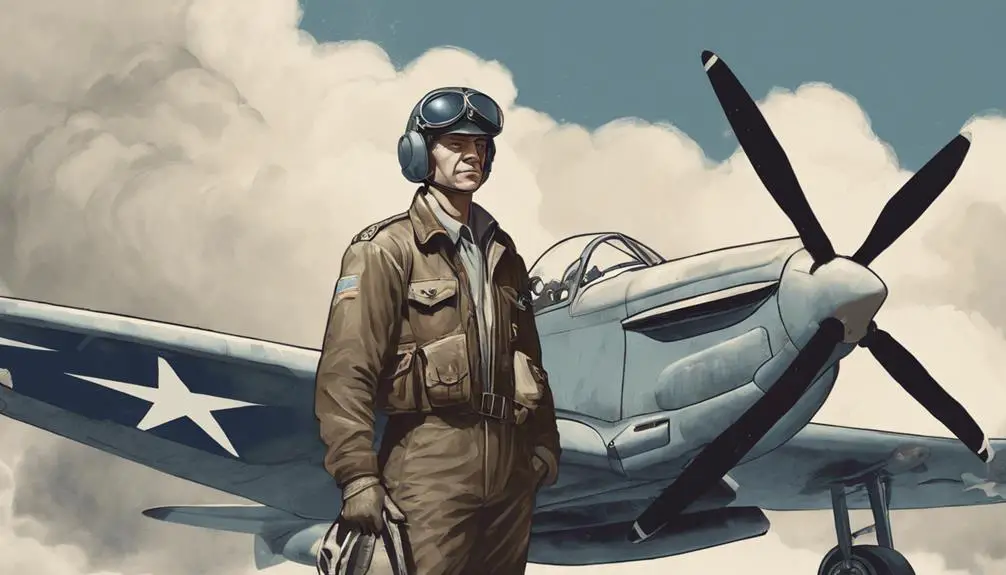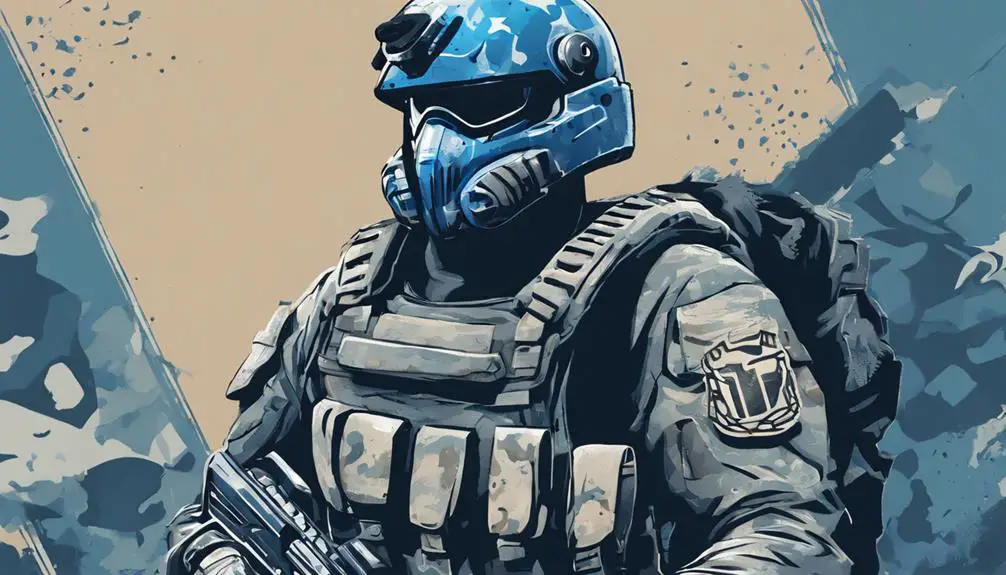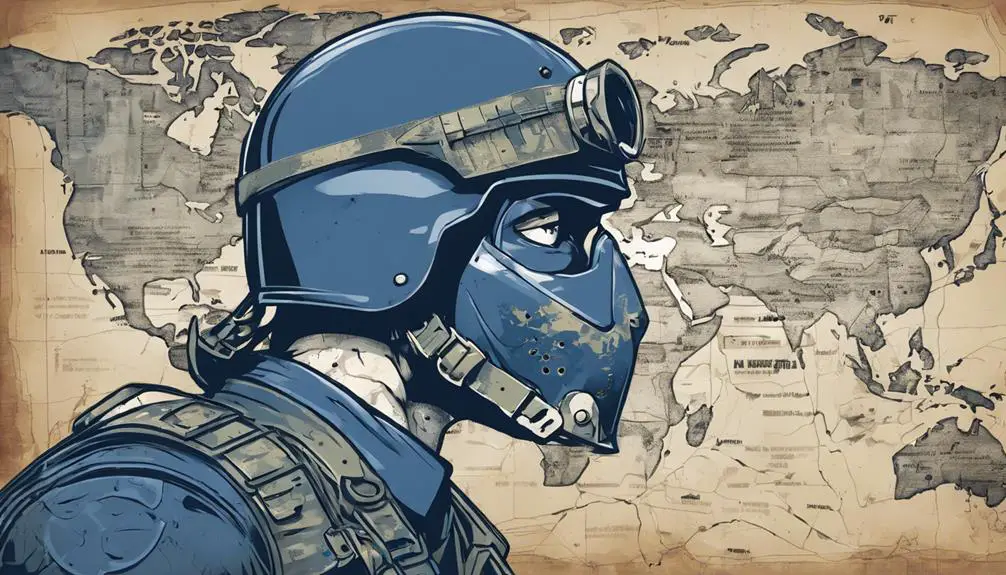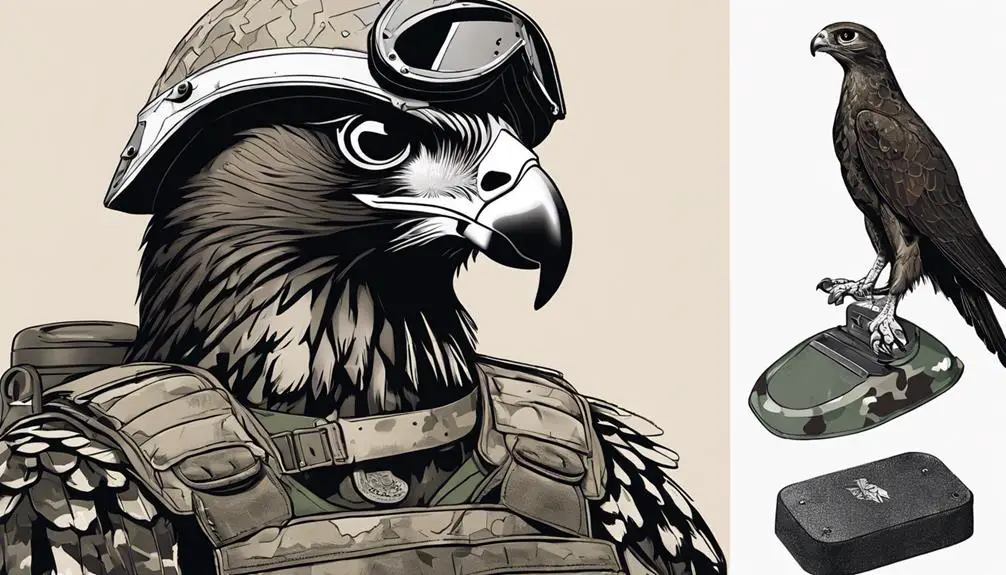When you hear "Blue Falcon" in a military context, it's not a badge of honor. In fact, it's the opposite. This term, born in the US Army and Air Force, describes a soldier who betrays their unit, compromising trust and camaraderie. It's a scathing accusation, implying reckless or selfish behavior that undermines unity and can devastate morale. This breach of trust can have long-lasting, detrimental effects on a team's cohesion and effectiveness. As you explore the world of military slang, you'll discover more about the significance of this term and its cultural implications within the military.
Origins of the Blue Falcon Term

The term 'Blue Falcon' originated in the US military, specifically among Army and Air Force personnel, as a colloquialism to describe a fellow soldier who inadvertently betrays or compromises their own unit or comrades, often through careless or reckless behavior.
You might be wondering how this term came to be, and what historical context it stems from. To understand the etymology of 'Blue Falcon', it's important to explore the Military Etymology of the term. The phrase emerged during a time when camaraderie and trust were vital to survival on the battlefield. When a soldier's actions put their own team in harm's way, it was seen as a grave betrayal.
The Historical Context of the term is rooted in the post-Vietnam War era, where trust and loyalty were paramount. You, as a student of military slang, should recognize that 'Blue Falcon' is more than just a phrase – it's a warning to fellow soldiers to be mindful of their actions and prioritize their comrades' safety.
What Does Blue Falcon Mean
You're likely wondering what it means to be labeled a Blue Falcon, and the implications it has on your reputation as a soldier. Fundamentally, a Blue Falcon is a term used to describe a fellow soldier who engages in buddy sabotage – intentionally causing harm or undermining their comrades' efforts. This behavior is considered a form of military betrayal, violating the trust and camaraderie that's crucial in a combat unit.
Here are some key aspects of being a Blue Falcon:
- Actively working against the team: A Blue Falcon deliberately sabotages their own unit's efforts, putting their comrades' lives at risk.
- Breach of trust: By engaging in buddy sabotage, a Blue Falcon breaks the trust that's vital for a cohesive and effective team.
- Eroding morale: The actions of a Blue Falcon can lead to low morale, as soldiers begin to question who they can trust.
- Undermining mission success: By working against their own unit, a Blue Falcon can compromise the success of a mission, putting everyone at risk.
- Reputation damage: Being labeled a Blue Falcon can irreparably damage a soldier's reputation, making it difficult to regain the trust of their comrades.
How Blue Falcon Is Used

In the trenches of military slang, the term Blue Falcon is hurled as a scathing accusation, implying a profound breach of trust within the ranks. When you're called a Blue Falcon, it means you've compromised the trust of your comrades, putting their lives at risk. This term is often used to describe someone who has engaged in selfish or reckless behavior, undermining military camaraderie.
Here's a breakdown of how Blue Falcon tactics can manifest:
| Action | Consequence | Impact on Unit |
|---|---|---|
| Abandoning post | Leaves comrades vulnerable | Erodes trust, compromises mission |
| Withholding intel | Puts entire unit in danger | Undermines team's ability to respond |
| Prioritizing self | Jeopardizes others' safety | Destroys morale, fosters distrust |
You can see how Blue Falcon behavior can quickly deteriorate the cohesion and effectiveness of a military unit. When you prioritize self-interest over the well-being of your fellow soldiers, you're engaging in Blue Falcon tactics. Remember, in the military, trust is everything – and once it's broken, it's hard to repair.
Cultural Significance in Military
Beyond the trenches, the term Blue Falcon resonates deeply within military culture, symbolizing a profound breach of trust that can have far-reaching consequences for unit cohesion and operational effectiveness. As you navigate the complexities of military life, you'll find that the cultural significance of Blue Falcon extends far beyond its literal meaning. It represents a betrayal of trust, a violation of the unwritten code that binds military personnel together.
Here are some key aspects of the cultural significance of Blue Falcon:
- Esprit Deception: Blue Falcon embodies the opposite of esprit de corps, where unity and camaraderie are replaced by distrust and suspicion.
- Unit Morale: When a Blue Falcon is identified, it can have a devastating impact on unit morale, causing resentment and hostility to spread like wildfire.
- Leadership Failure: A Blue Falcon incident can be a symptom of deeper leadership failures, highlighting the need for commanders to address underlying issues.
- Cohesion and Trust: The term serves as a stark reminder of the importance of trust and cohesion within military units, where lives depend on one another.
- Cultural Awareness: Recognizing the cultural significance of Blue Falcon helps you understand the gravity of its consequences and the need for proactive measures to prevent such incidents.
Evolution of Military Slang

Military slang, including terms like Blue Falcon, evolves over time, reflecting the collective experiences, cultural nuances, and operational realities of each generation of service members.
As you explore the world of military lingo, you'll notice that slang adaptation is a continuous process. New terms emerge, while others fall out of favor or are replaced by more relatable expressions. This evolution is driven by the need for efficient communication, camaraderie, and a sense of belonging among service members.
You'll find that military slang often mirrors the cultural and social changes within society. For instance, the rise of technology has led to the creation of new terms and abbreviations, such as 'FOB' (Forward Operating Base) and 'SITREP' (Situation Report).
As the military adapts to new challenges and environments, its language adapts too, incorporating elements from various cultures and contexts. By studying the evolution of military slang, you'll gain insight into the complexities of military culture and the creative ways service members communicate with each other.
Frequently Asked Questions
Is Blue Falcon Exclusive to the US Military?
You might wonder if the term 'Blue Falcon' is exclusive to the US military. Let's explore this question without the context of military slang.
The answer lies in the military heritage of various countries. While the term might be uniquely American, international counterparts have their own phrases to describe a buddy who snitches or rats out others.
It's likely that each country's military has its own equivalent, making 'Blue Falcon' not entirely exclusive to the US military.
Can Blue Falcon Be Used in Formal Military Settings?
When attending formal military events or writing official documents, you should refrain from using colloquialisms like 'blue falcon.' In formal protocol, military etiquette dictates the use of professional language to maintain respect and discipline.
Using slang terms may be perceived as unprofessional and undermine the dignity of the occasion. Stick to standard military jargon and avoid using 'blue falcon' in formal settings to guarantee you're taken seriously.
Is Blue Falcon a Derogatory Term in Civilian Contexts?
You might wonder if 'blue falcon' is a derogatory term in civilian contexts. Outside of military settings, this phrase takes on a different connotation.
It's essential to recognize that using 'blue falcon' in civilian contexts can be seen as cultural appropriation, borrowing a term specific to military culture without understanding its original context.
This can lead to social stigma, as it may be perceived as disrespectful or insensitive to the original meaning and community.
Can Blue Falcon Be Used to Describe a Team Effort?
You might be surprised to know that 75% of employees consider teamwork essential for business success.
Now, about that question: can 'blue falcon' describe a team effort?
In a non-military context, the term doesn't inherently evoke team dynamics. However, if you're referring to a collaborative spirit where individuals work together towards a common goal, then yes, 'blue falcon' could be used to describe a cohesive team effort, emphasizing mutual support and collective achievement.
Is Blue Falcon Used in Other Languages or Cultures?
As you explore language evolution across cultures, you'll find that idioms rarely translate directly.
Cross-cultural analysis reveals that colloquialisms, like 'blue falcon,' are often unique to their native language. While similar phrases may exist, they typically convey different meanings.
You won't find a direct equivalent of 'blue falcon' in other languages or cultures, making it a distinct aspect of military slang.
Conclusion
As you explore the depths of military slang, it's clear that 'Blue Falcon' has become an integral part of the lexicon.
This term, born from the ashes of military jargon, has evolved to become a badge of dishonor, symbolizing the ultimate betrayal.
Like a modern-day Judas, the Blue Falcon is reviled by comrades, a constant reminder of the importance of loyalty and trust.
As the fog of war lifts, the significance of this term will endure, a tribute to the enduring power of language in shaping military culture.







